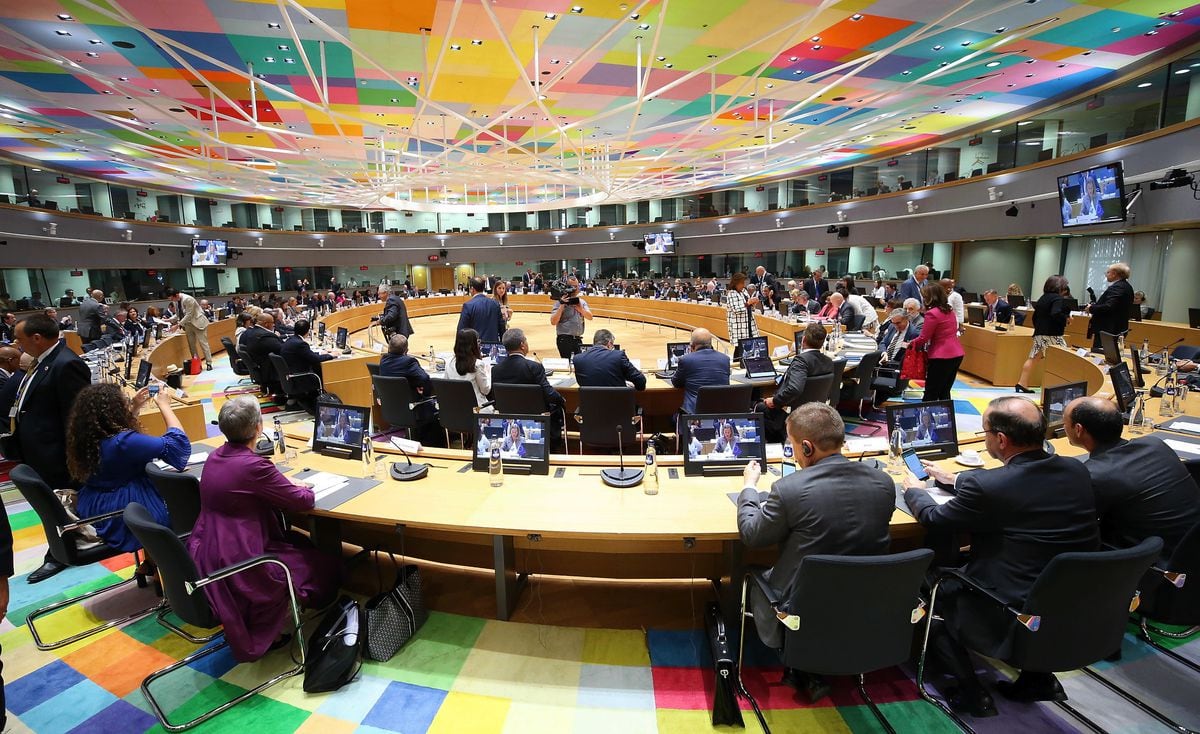Argentine President Alberto Fernández, during his presidency at the head of the Community of Latin American and Caribbean States, in 2022, used to recall a reflection that Luiz Inácio Lula da Silva made in Paris in 2011, when his first two terms had already ended. Lula said at France's Institute of Political Studies that postwar European unity was not just an achievement for Europe. "It is a heritage of humanity, and as such it must be preserved," he said.
That reflection is still valid. Europeans know very well that the different stages of their integration leading up to the formation of the European Union are the offspring of political necessity. And, in its origin, nothing less than a fruit of the need to ensure peace after the Second World War. Born from different realities just over ten years ago, CELAC is a heritage of the nations of Latin America and the Caribbean, a collective contribution that arises from the political decision to consolidate the most densely populated zone of peace in the world.
Unlike the EU, the Community of Latin American and Caribbean States is still in a minor instance of integration. It is an instance of dialogue and consensus. But the region is home to integrationist mechanisms that have already been developed. Mercosur (with Brazil, Argentina, Paraguay and Uruguay) is one of them. Created 32 years ago, in 1991, it had the institutional strength to go through governments of different signs and today, among other tasks, it discusses with the EU how to finalize an agreement taking into account the principle of mutual benefit and considering the asymmetries between one block and another.
While welcoming the convergence of values and objectives between the EU and CELAC, between the EU and Mercosur, we must resolve the new dilemmas of the world economy, which the pandemic showed or aggravated. The challenges are enormous in terms of value chains. They have to be climate and social sustainable. They must consider local industrial development. They will be profitable if they link the production of raw materials for the energy transition with electro-mobility and a low-carbon economy.
Let us deepen the common agenda on these issues. It cannot be postponed and is mutually beneficial. The same applies to international financial conditions, which occur in the midst of fragilities in terms of external debt and with very limited fiscal room for manoeuvre.
Argentina, whose government inherited a gigantic debt to the International Monetary Fund, which is negotiating today with two simultaneous criteria — responsibility towards creditors and the need not to mortgage the future of society — appreciates the understanding of the nations of Europe that understood the relationship between stability and equity in a region of the world. There is a universal agenda, that of the United Nations sustainable development goals for 2030. According to the FAO, if the world does not take drastic decisions we will reach 2030 with the hunger of 2015. We will not have made any progress. And in terms of human development, not moving forward is going backwards.
The risk of regression is known today by societies in Europe, Latin America and the Caribbean. It gives rise to a triad to advance. First, citizen skepticism about politics. Then, the advance of anti-politics. And later, the exploitation of anti-politics by authoritarian movements, even fascists and neo-fascists. Unfortunately, we are already in the third stage. But democracies are not defeated. The danger is that they do not see – that we do not see – the obvious relationship between unmet needs and the capitalization of those needs by forces that want a low-intensity democracy, perhaps as a prologue to their complete disappearance.
So that we can advance in each nation, in each bloc, in each consensus forum, and then so that we can specify milestones of cooperation, it is essential to observe these economic, political and social realities in a systemic way.
Let's look at the example of food. According to the OECD, global agricultural subsidies account for as much as 15 percent of agricultural production. FAO argues that this phenomenon distorts the market, harms the environment and does not promote the production of nutritious food. We need fairer, more transparent, fairer and more predictable international trade in agricultural products.
Let's be practical. Let's see why we made progress in the areas where we made progress. For example, Argentina and the EU signed a memorandum of understanding for a Strategic Partnership on Sustainable Raw Material Value Chains. The document highlights the importance of Argentina as a reliable supplier of strategic and critical raw materials for the EU – especially lithium – and as a partner in the development of sustainable value chains with local industrial development and generation of quality jobs. And at the EU-CELAC summit we will sign another memorandum of understanding on energy. I take this opportunity to welcome the European Global Gateway program, for the financing of projects.
The bishops of Latin America and the Caribbean and the European bishops prepared, as a contribution to this summit, a valuable contribution from which I draw here a principle: let us build a fraternal world without leaving anyone behind.
Subscribe to continue reading
Read without limits
Read more
I'm already a subscriber

